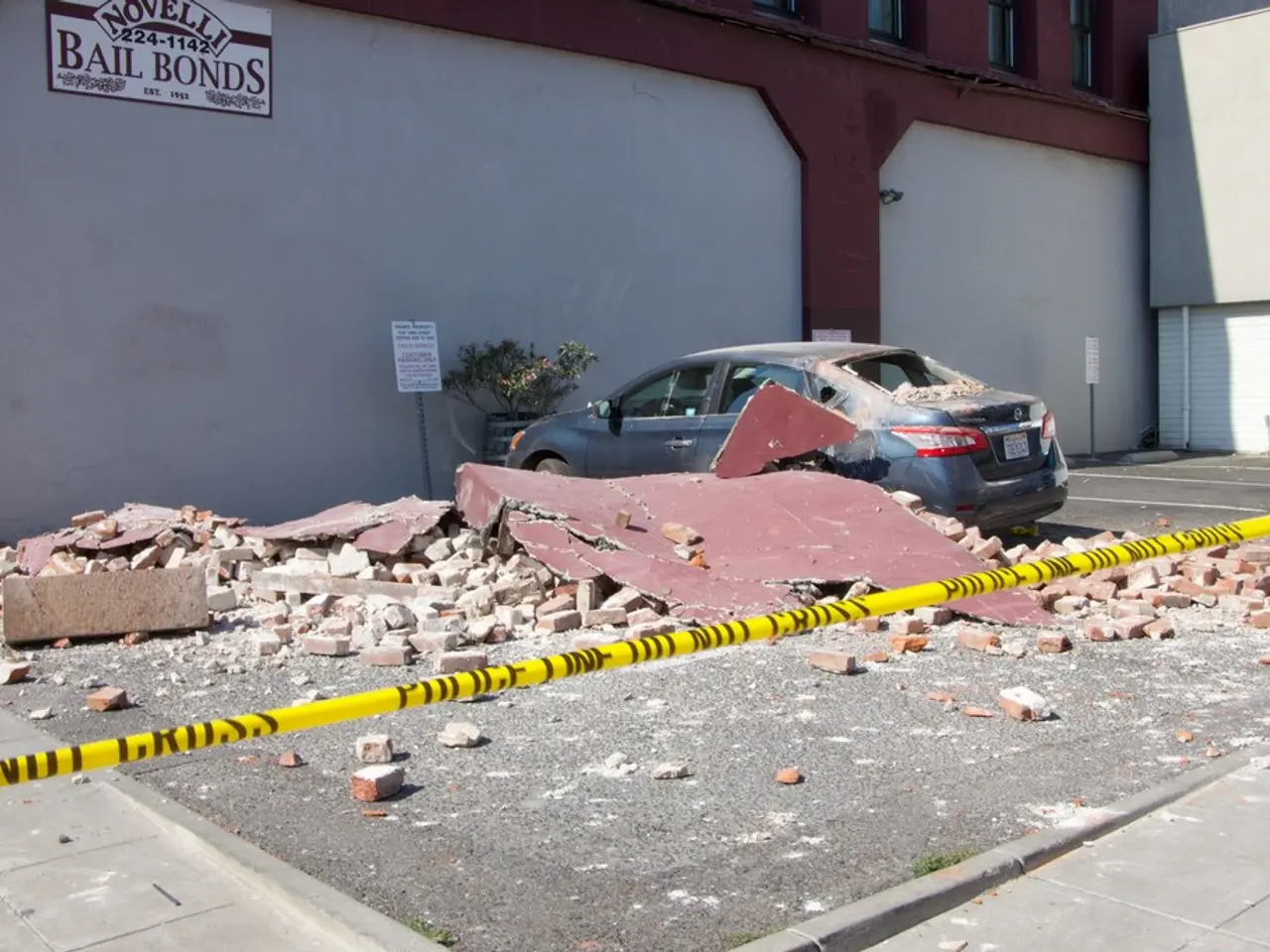Tenants in Kingston, who are due rent refunds, encounter hindrances while attempting to secure their payments
Kingston tenants who are owed refunds from the Rent Guidelines Board's historic negative rent adjustment are encountering significant challenges due to problematic claims systems, malfunctioning websites, and potential landlord resistance.
Jennie Goldstein, an organizer with For the Many, has stated that she personally calls the Division of Housing and Community Renewal (DHCR) frequently, along with tenants who are also calling, asking about the status of their refunds. However, DHCR remains unresponsive, according to Goldstein.
Tenants who receive an overcharge claim judgment from the state can expect a reduction in their monthly rent immediately. However, the process of obtaining an overcharge refund from a landlord is reportedly far from smooth. Tenants living in units covered by the Emergency Tenant Protection Act must fill out the RA-89 complaint form to show overcharges by their landlord.
Sarah Cizmazia, a Kingston tenant, filed her overcharge claim in September and received her judgment in July. However, she expects the process of contesting the judgment to take an additional 10 months. After the process is completed, Sarah will need to take her landlord to civil court to obtain a refund from the landlord for excessive rent paid.
Approximately one-tenth of the roughly 1,200 tenants covered by rent regulation in Kingston have sought help, with the number increasing since nearly 300 units at Stony Run were added to the Emergency Tenant Protection Act. Tenants who have trouble with the online application have resorted to sending certified mail to DHCR's office in Queens.
To effectively collect their refunds, tenants should document and gather evidence systematically of overpayments and relevant lease or rent stabilization status to support claims. They should persistently try to access and use the official refund claims system, despite website issues, possibly seeking help from tenant advocacy groups or local housing agencies that may offer technical assistance or guidance.
Engaging with the city's Rent Guidelines Board and local tenant unions or legal aid organizations for advocacy and support can also be beneficial. These groups can sometimes facilitate smoother processing or pressure system fixes. Tenants should also prepare for potential legal action if landlords refuse to comply by consulting with housing attorneys experienced in rent stabilization and refund claims. Pro bono legal services may be available given the public policy implications.
Staying informed on any updates or improvements to the claim process announced by city officials is also important, as ongoing policy responses may ease obstacles in the future. For The Many, Legal Services of the Hudson Valley, and the Hudson Valley Justice Center opened an overcharge clinic to help Kingston tenants residing in rent stabilized units get judgments from DHCR.
The infrastructure for refunds is nascent and imperfect, requiring tenant vigilance and support from advocacy groups to overcome system failures and landlord pushback. In a positive development, the state Court of Appeals upheld Kingston's Rent Guidelines Board's decision to give tenants a negative rent adjustment (refund) in 2022.
[1] Source [3] Source
- The local government's Rent Guidelines Board's decision to provide housing refunds to tenants in Kingston has been upheld by the state Court of Appeals, providing a legally binding precedent.
- Tenants encountering difficulties with the refund claims system may seek assistance from local housing agencies, tenant advocacy groups, or legal aid organizations, who can provide technical help, guidance, or advocacy.
- In the face of malfunctioning websites and potential landlord resistance, tenants should persistently engage with the official refund claims system, gather evidence, and prepare for potential legal action if necessary, with pro bono legal services potentially available due to public policy implications.




